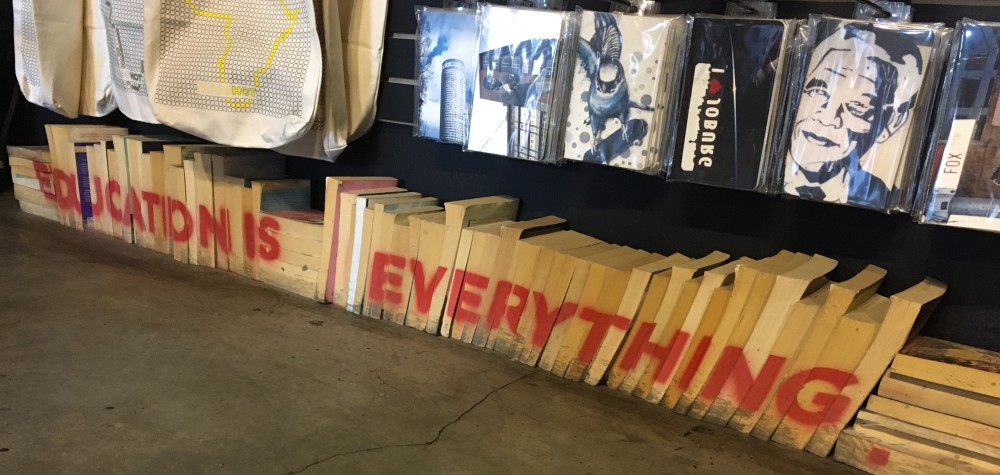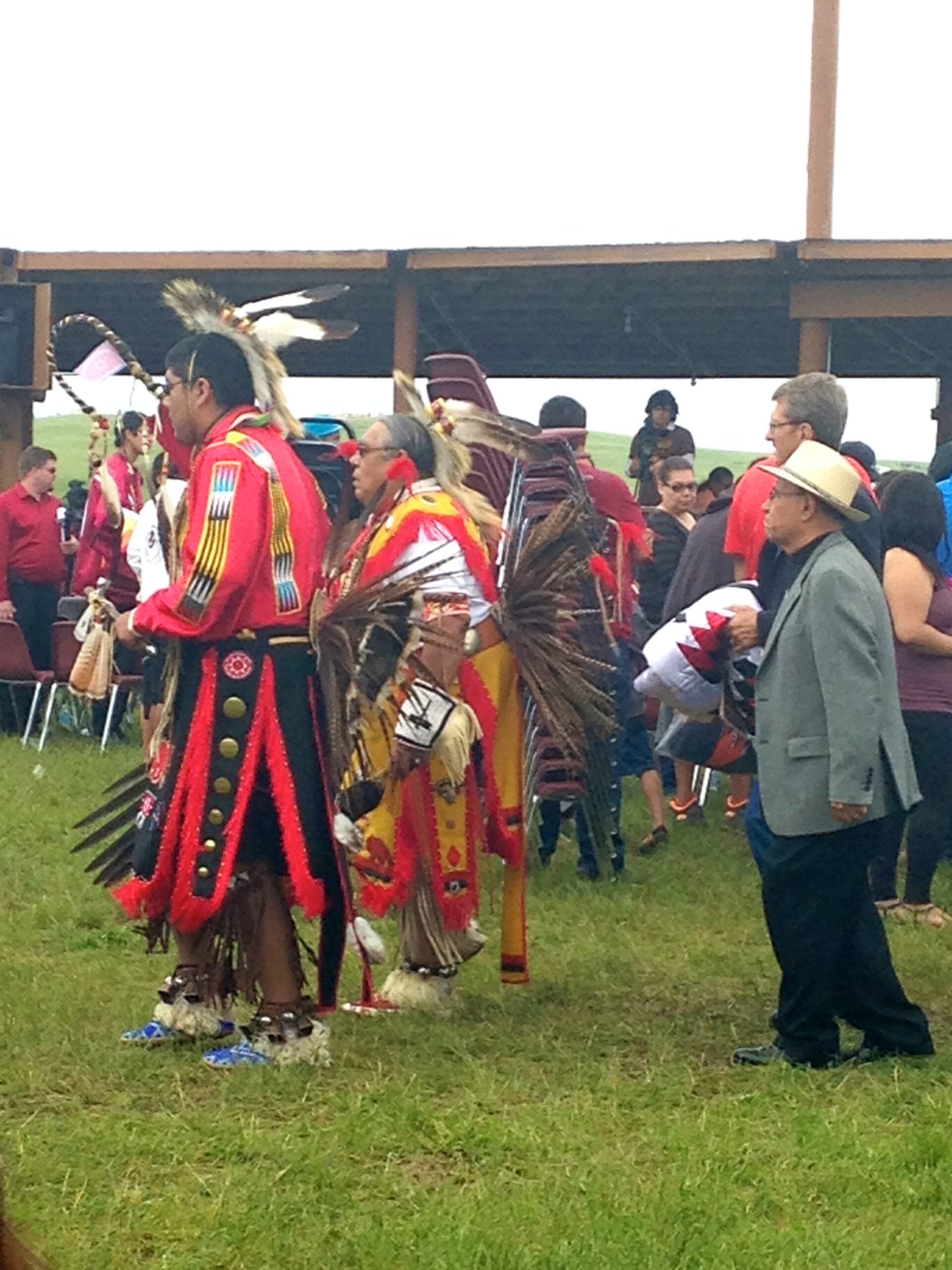June 19 – 22
Upon arrival at Oglala Lakota College (OLC) we tour the historical center, which provides a brief overview of the Lakota people, the region, and of the college itself through a combination of artifacts, pictures, audio and video presentations.
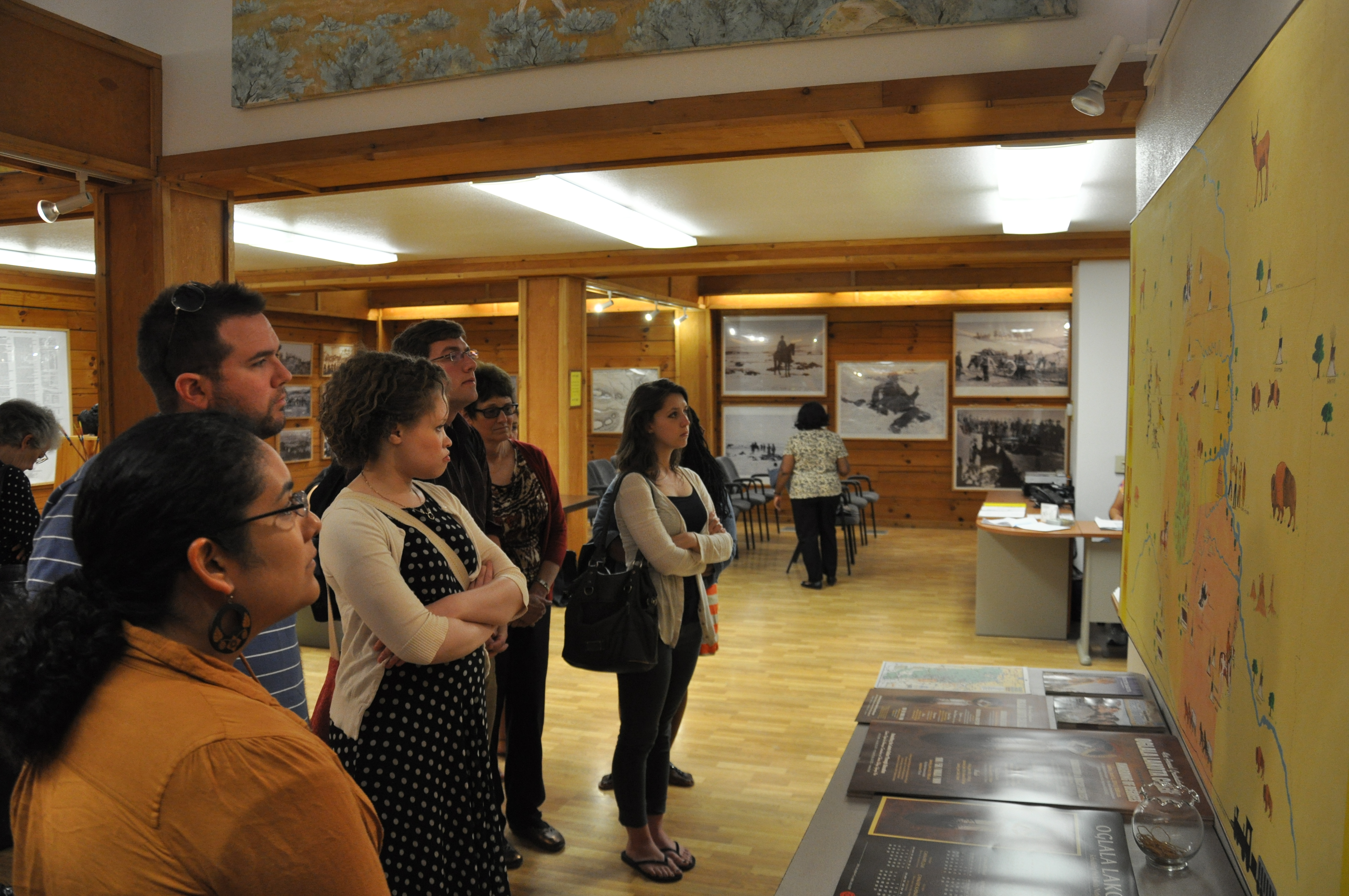
Next, we are honored to meet with Cecilia Firethunder, the first woman tribal (past) president. She generously shares some of her educational and personal life experiences with the group. A child of the Relocation Program, Cecilia’s family moved from Pine Ridge Reservation when she was young. Her adult life has been spent advocating for the rights of others. In particular, she is intensely passionate about improving the lives of women. In 1988 she created the Oglala Lakota Women’s Society to address the high rates of domestic violence. One outcome of Cecilia’s advocacy, she explains, was the Oglala Sioux Tribe’s adoption of a comprehensive law in 1989 to address domestic violence—the first by a tribe in the U.S.—which has served as a model for other tribes. For the past 25 years she has worked locally, regionally and nationally with Indian Tribes at all levels of change to end violence against women. Even in the short amount of time we spend with her, just being in Cecilia’s presence it is easy to understand her ability to get things done. Her zeal is infectious.
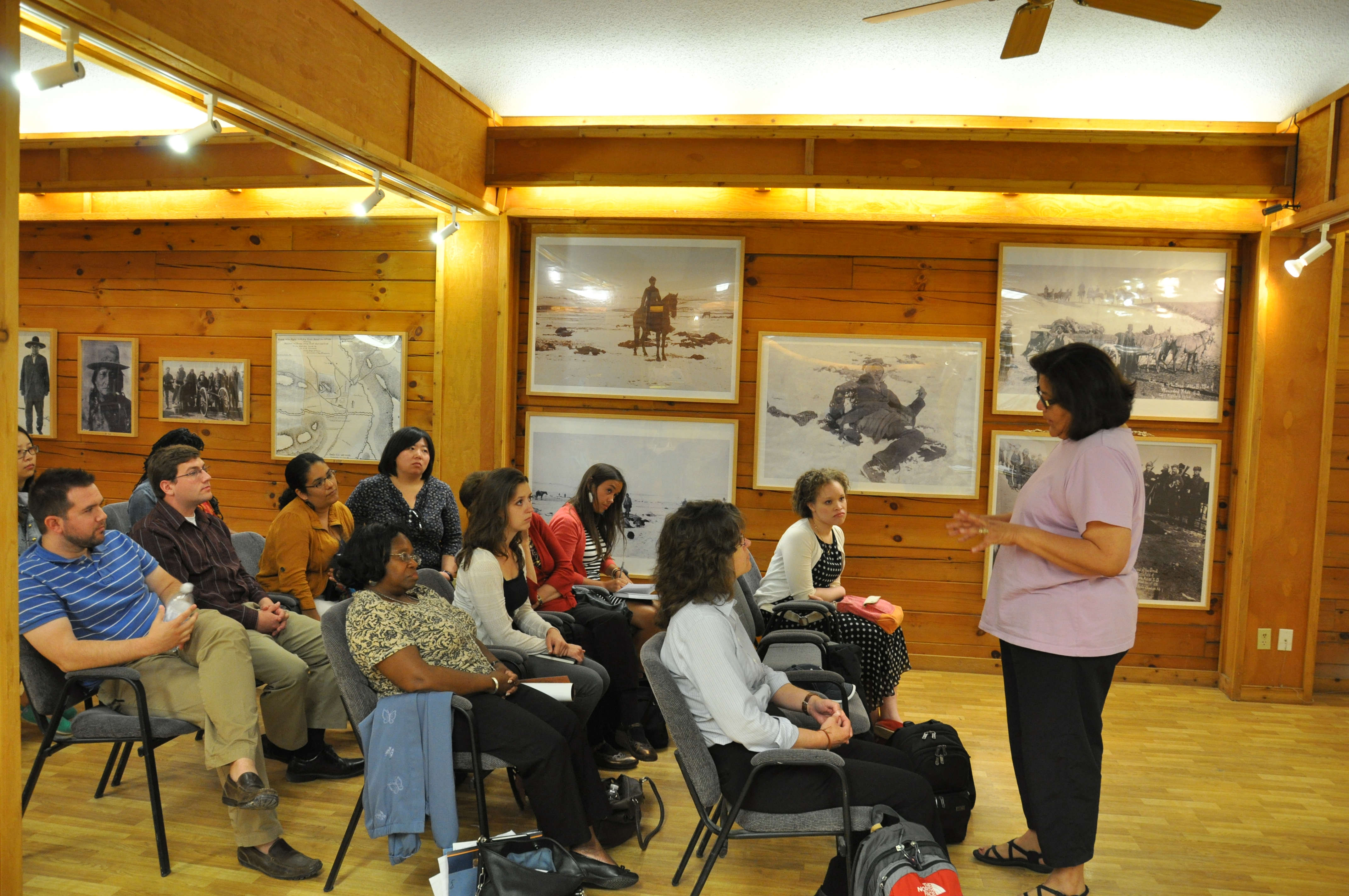
Our afternoon includes a lunch of buffalo soup, frybread and wojapi in the OLC library, where we attend a discussion about historical trauma led by guest speaker Roberta Hill, Professor of English and American Indian Studies at the University of Wisconsin-Madison.
We learn from Library Director Michelle May about the library’s multiple missions. The library, established in 1979, serves not only as a resource for Oglala Lakota College students, but also as the public library for the town of Kyle, SD, situated six miles east of campus, and the surrounding community. Due to the diffused nature of the residents on Pine Ridge, partnerships with local elementary schools mean library staff travel significant distances with regularity to reach their young constituencies. The college also plays another important role in the community by managing the local Head Start program. This responsibility serves to not only ensure important services to children, but also provides support to OLC parents attending college.
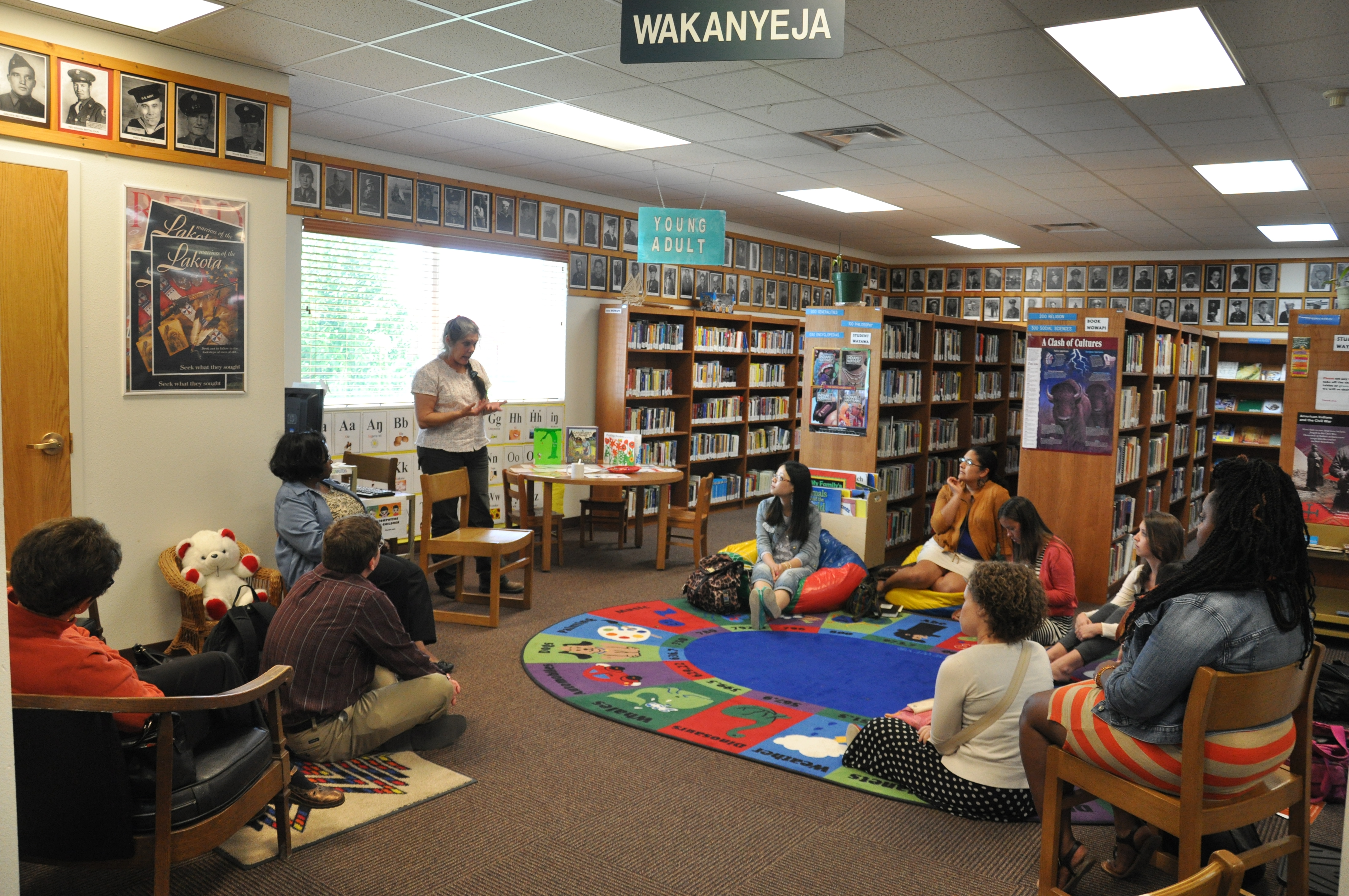
The challenge of distance is a theme repeated in and addressed by the distributed classroom center model of the college. We visit one such center in Kyle, where we meet Albert Two Bears, a GED tutor and aspiring actor. Albert offers us a tour of the facilities, and generously shares his personal educational journey with us as well.
Another person who shares his inspiring educational experiences with us is Michael Catches Enemy. Michael is the current (and the first!) tribal archaeologist for the Oglala Lakota Tribe, and an alumnus of Oglala Lakota College. Having the opportunity to spend multiple days at the college, getting to actually know people, and gaining these intimate, first-hand stories of challenge, perseverance, and hope are powerful lessons for us. Our group debrief sessions are rich with new questions, along with many assumptions being reconsidered.
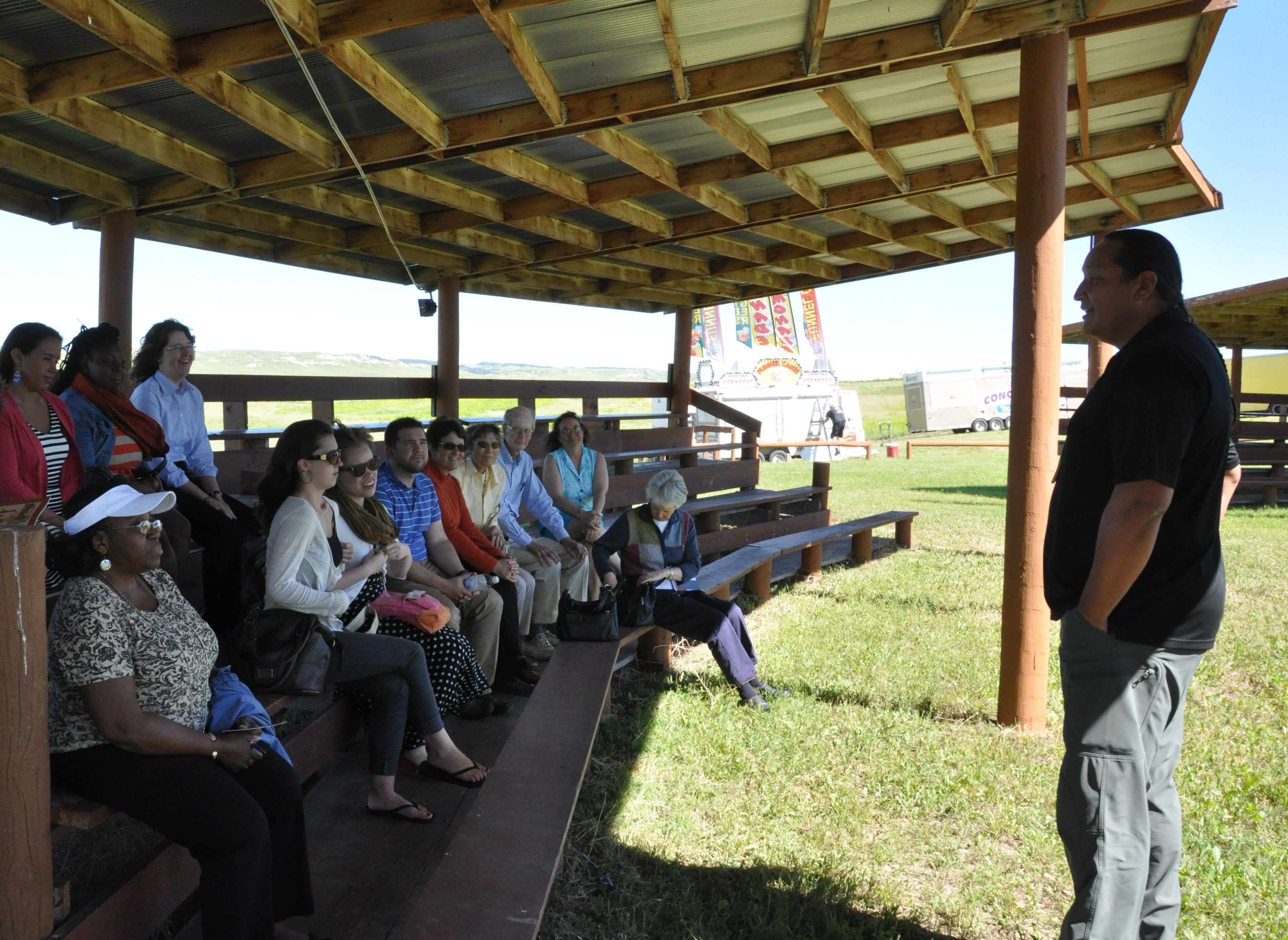
The next morning we have the opportunity to speak with Tom Raymond, Dean of Education, about assessment. And, our capstone meeting at OLC is with President Thomas Shortbull who candidly discusses with us some of the challenges faced by his institution. Born from these multiple conversations between OLC and U-M colleagues is a genuine interest in what future collaborative initiatives might look like between our two institutions. It’s thrilling that our presence on campus during this trip has been met with such a spirit of partnership.
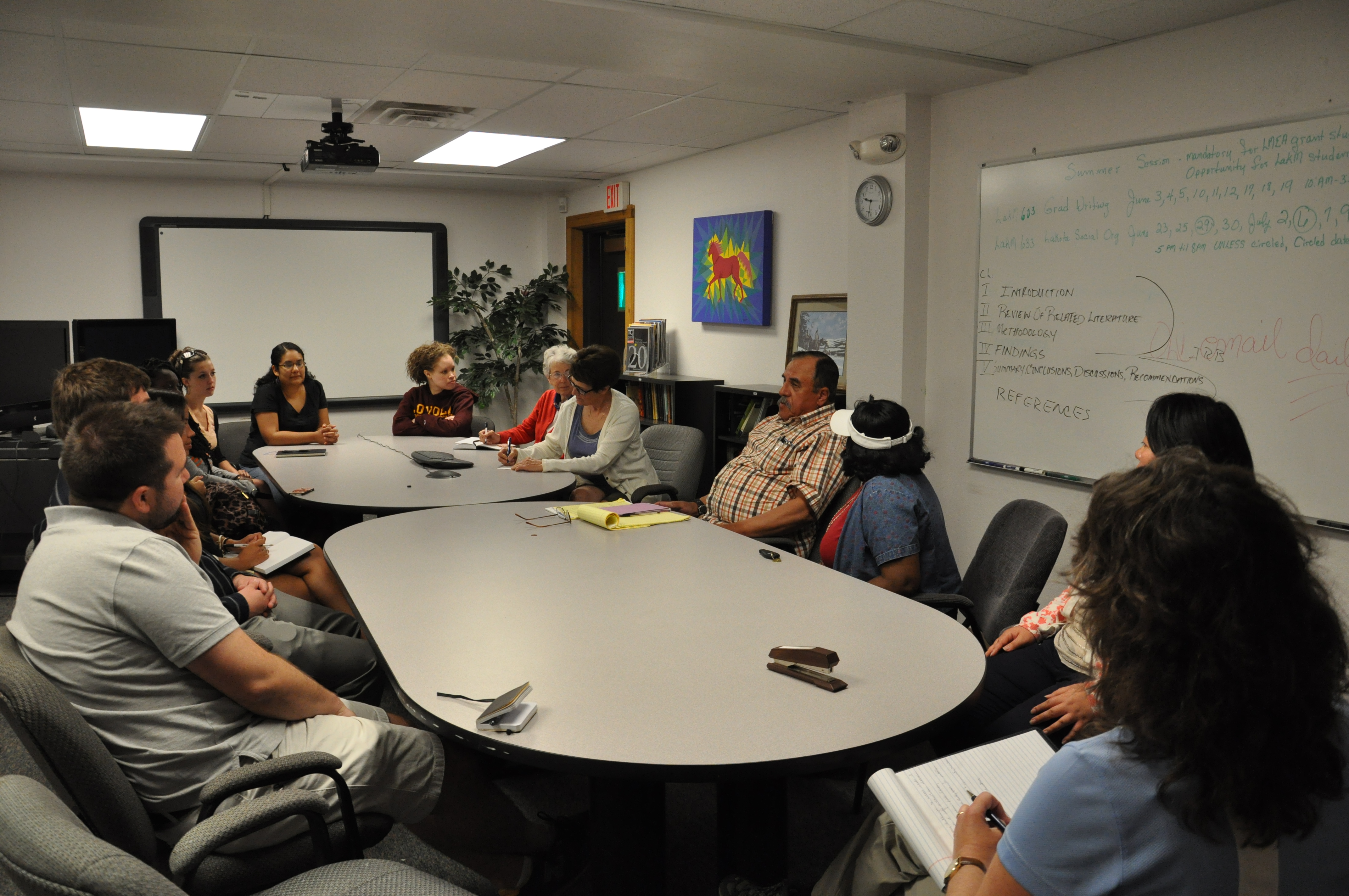
Each evening members of our group attend the powwow festivities, and a few of us even join in during an intertribal dance. We didn’t win any prizes, but we sure had fun!
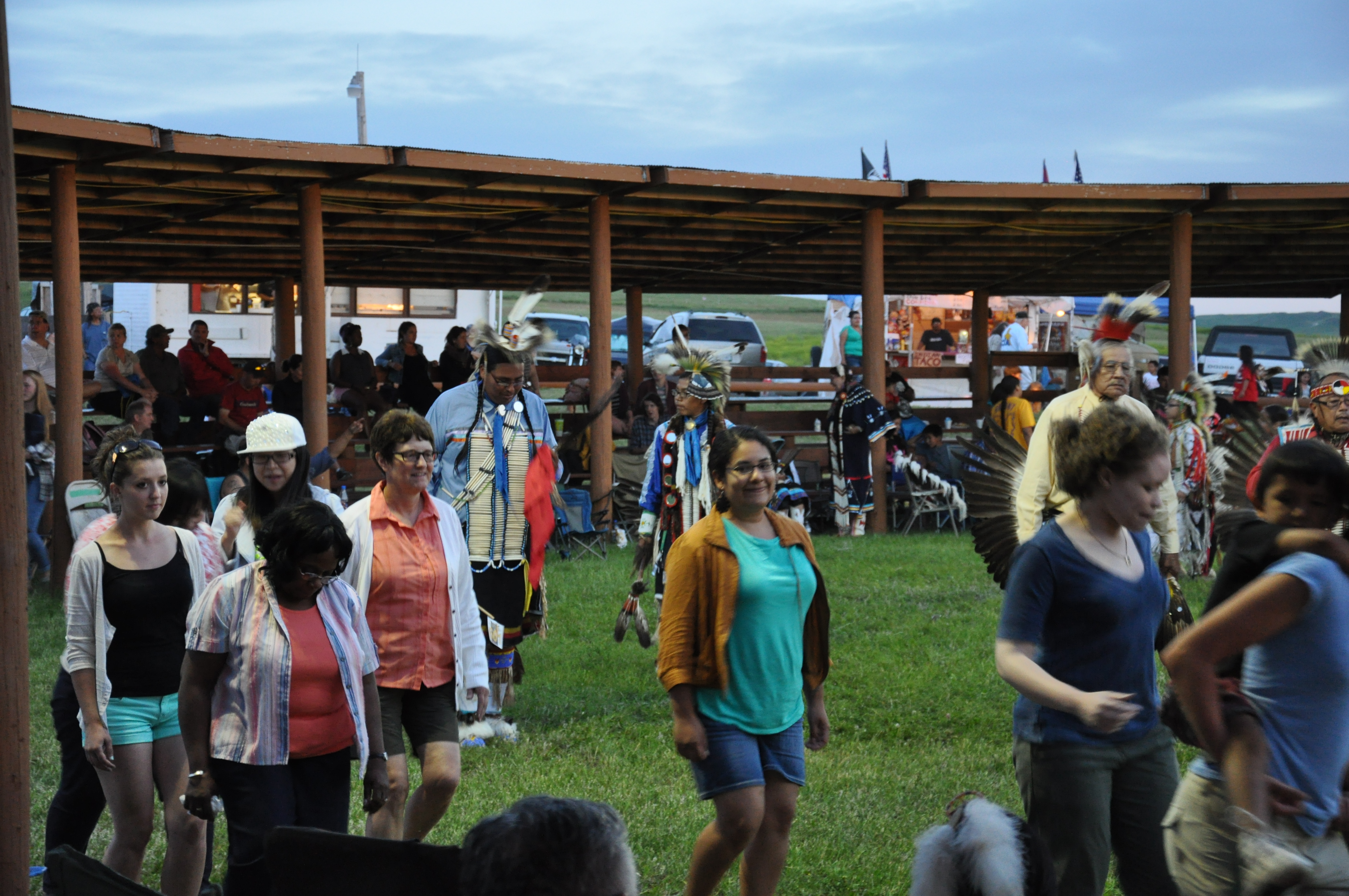
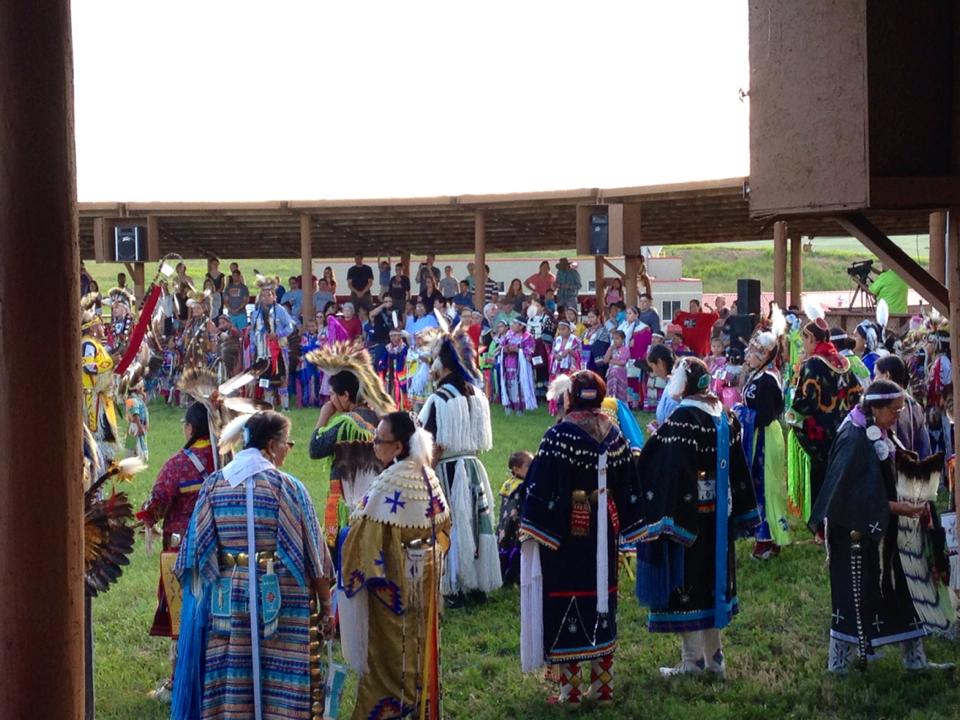
In addition to our conversations with OLC personnel, another aspect of our time at Oglala Lakota College is intended to immerse ourselves, to the extent possible, into the life of the community through service. This exercise takes several forms all based around the OLC graduation/powwow weekend, during which our visit occurs. Members of our group assist with tree plantings, meal preparation, and food service, among other things. We meet and enjoy the companionship of many OLC colleagues and community members during our four days on campus.
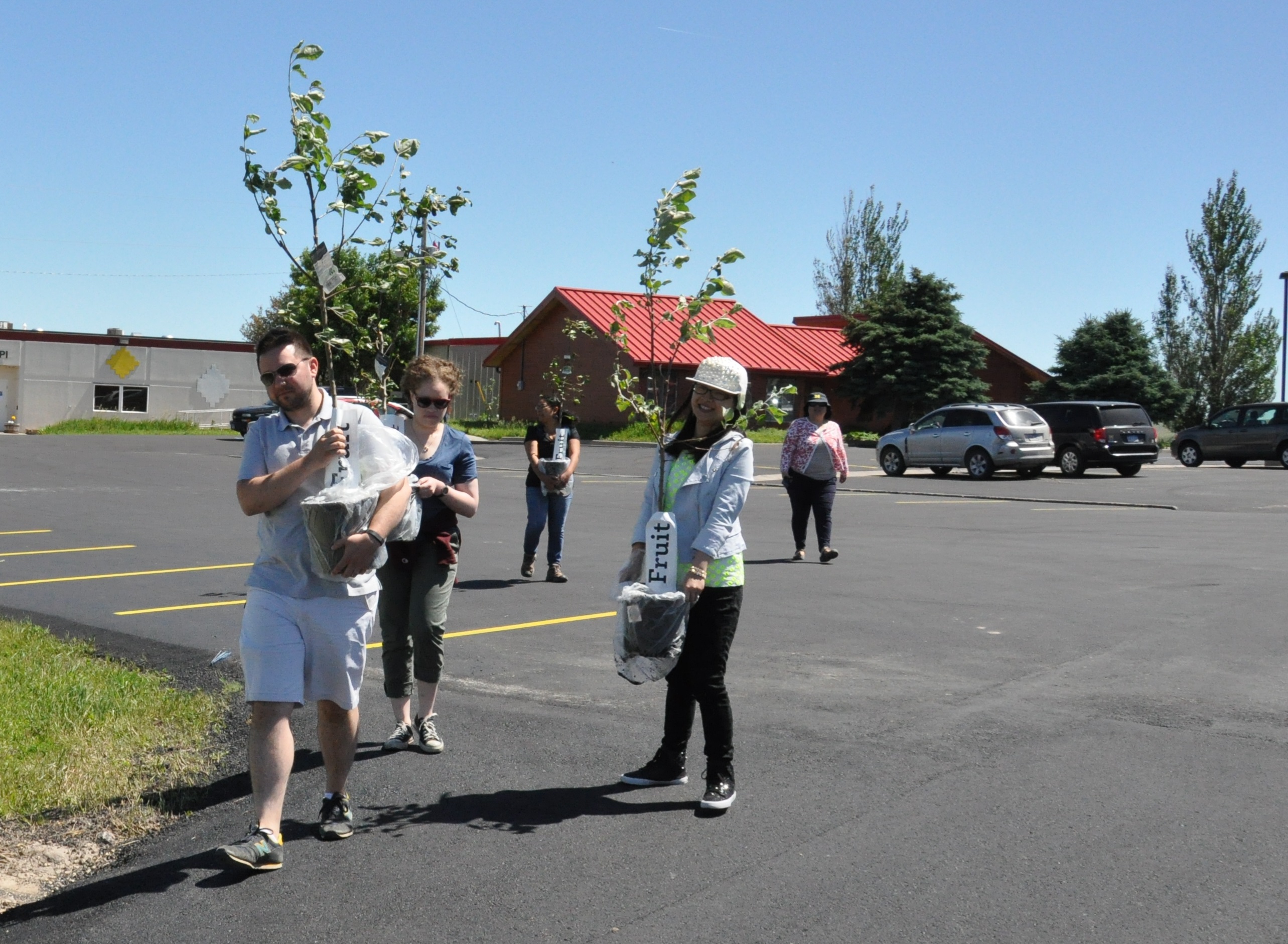
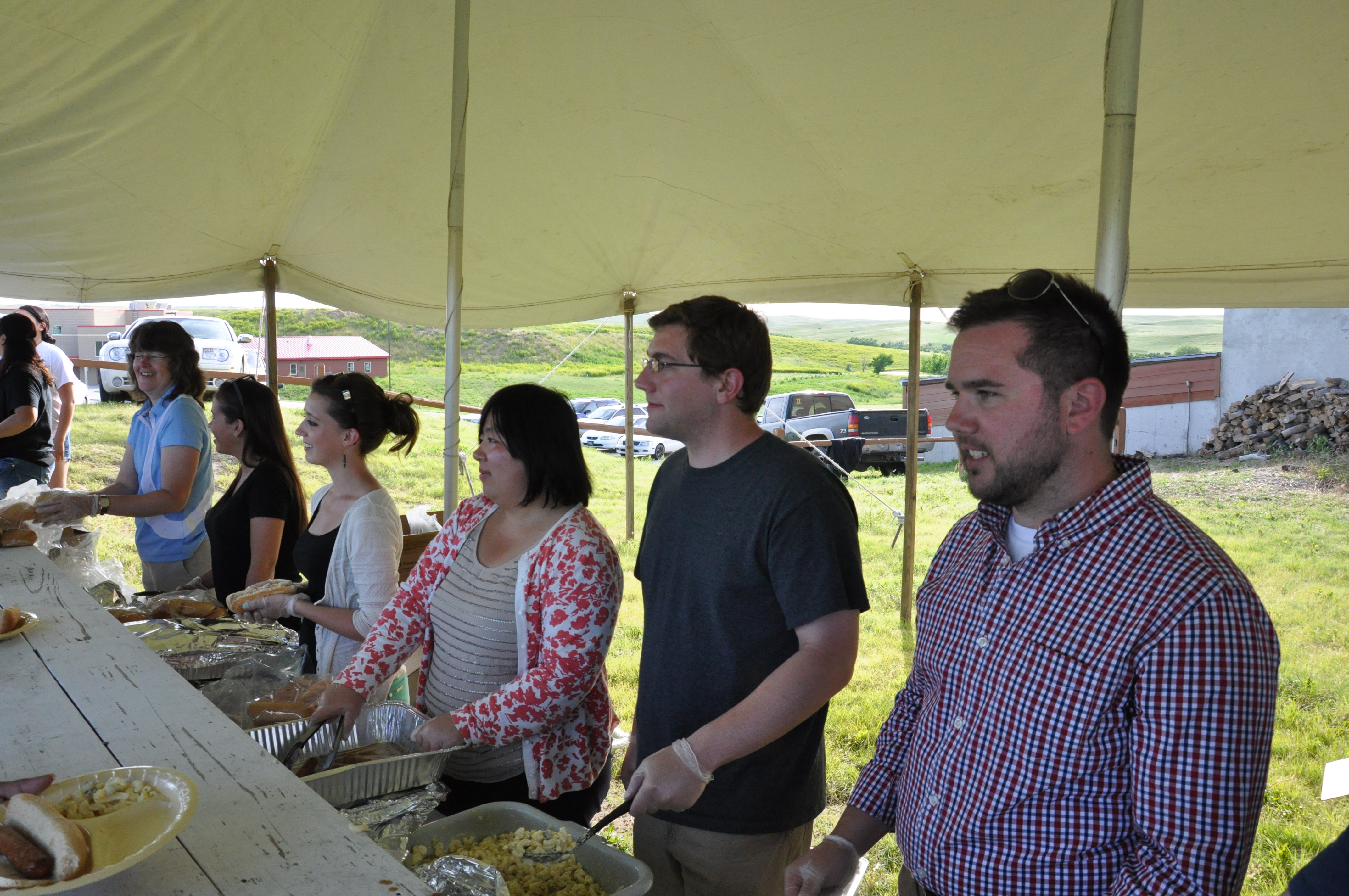
Our concluding activity is attending graduation, a beautifully inclusive event.
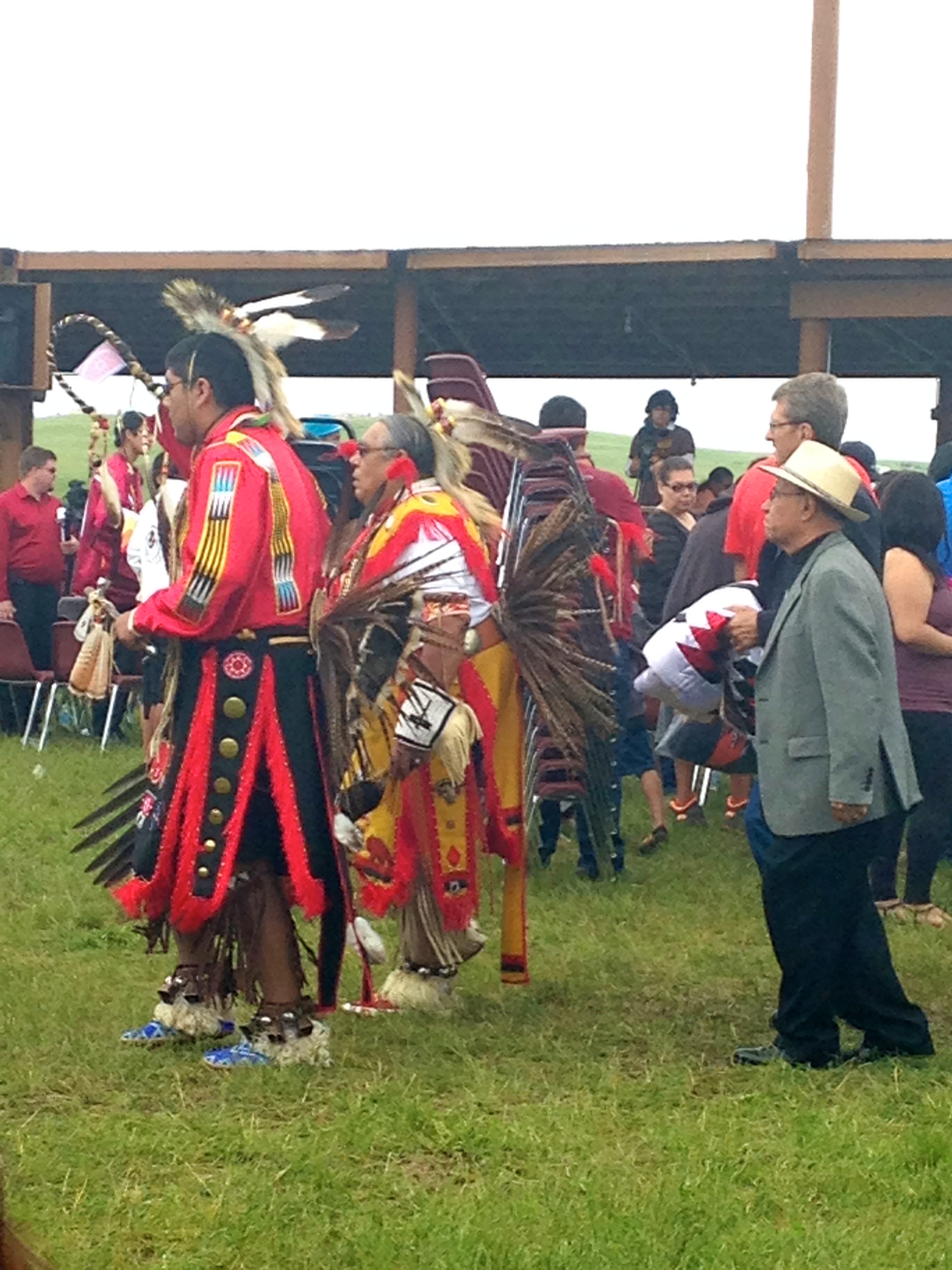
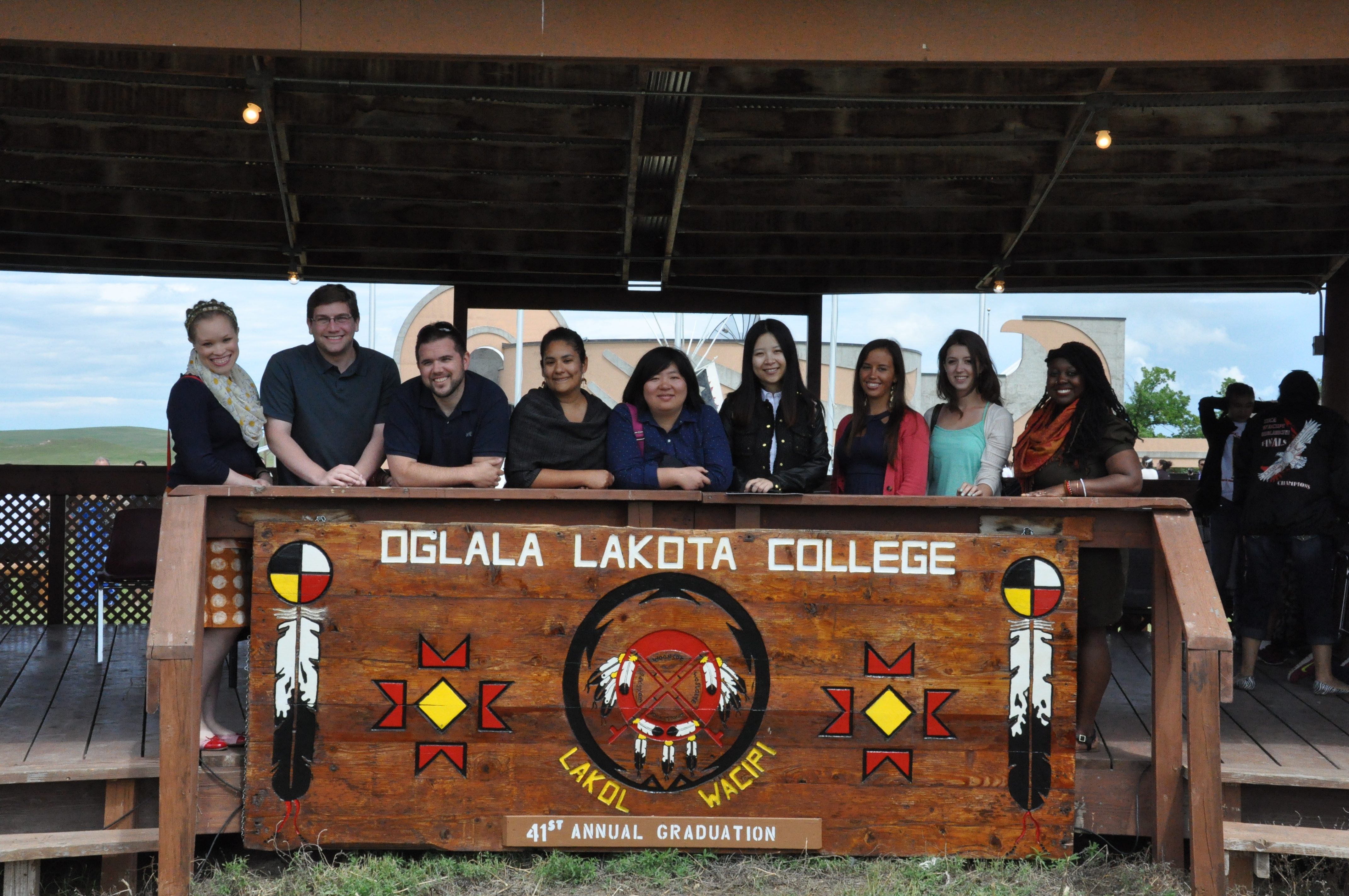
Normal
0
false
false
false
EN-US
X-NONE
X-NONE
